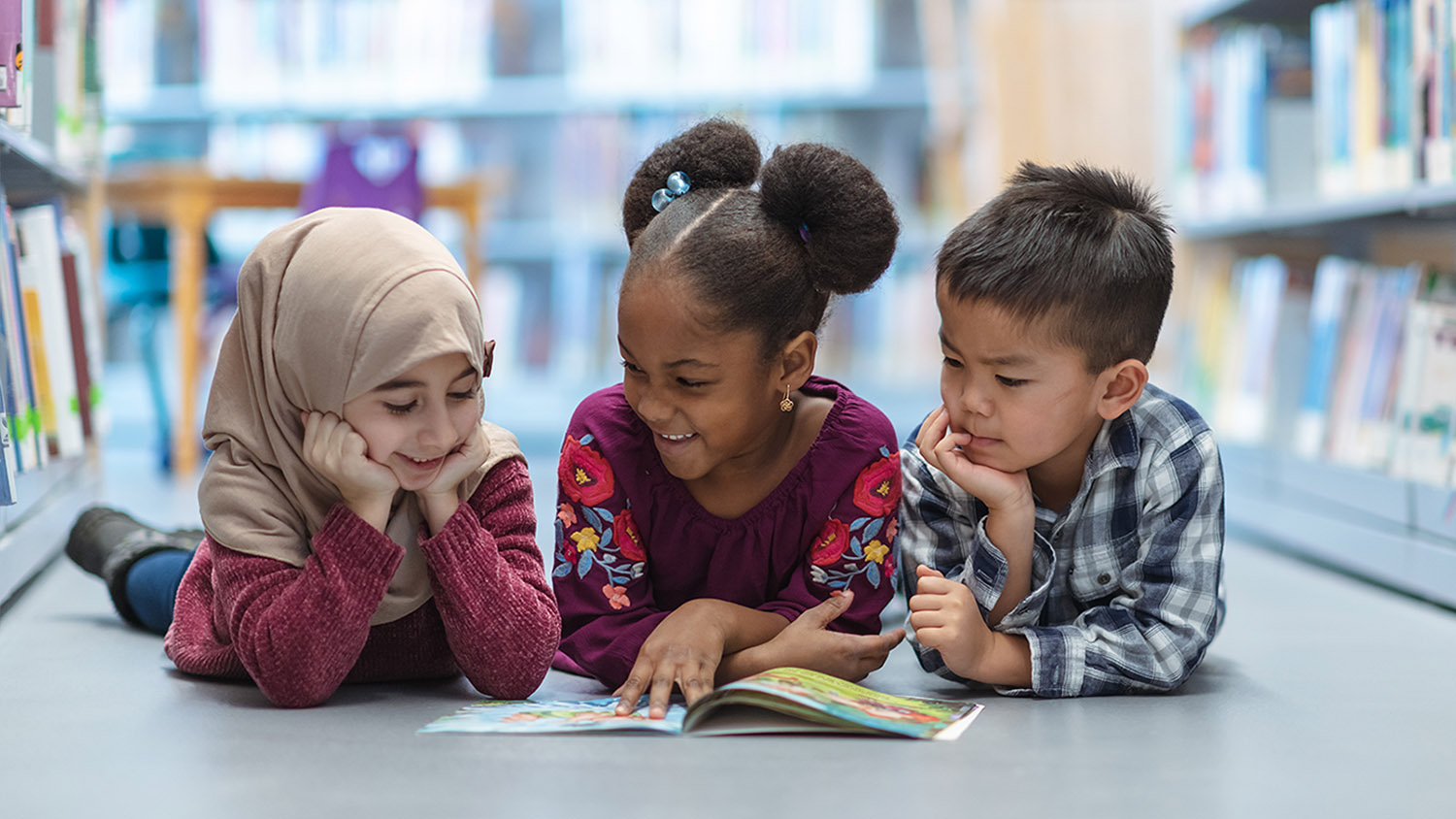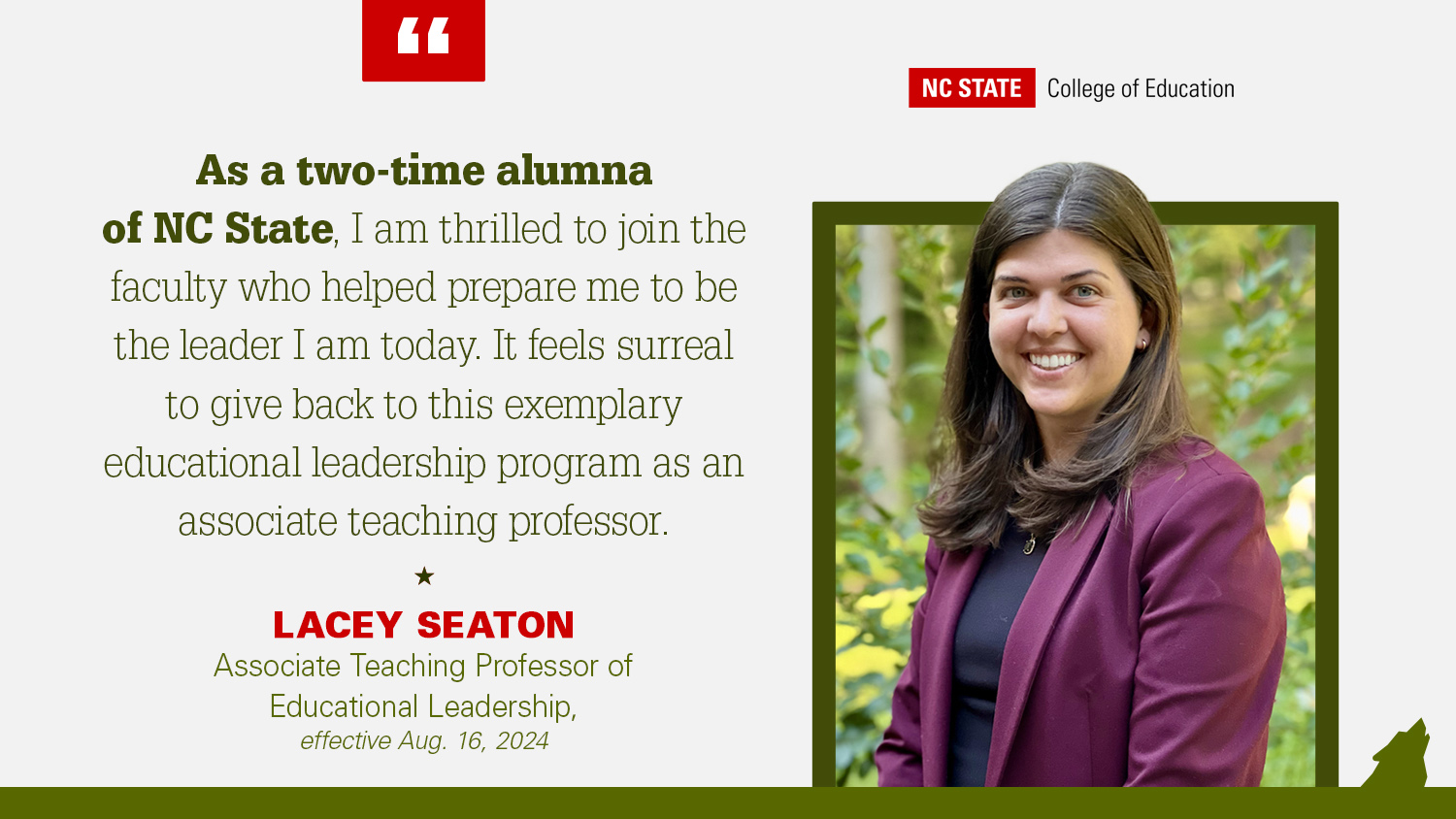College of Education Faculty Offer Tips to Prevent Summer Learning Loss

Students can often fall behind in their learning during the summer months, in a phenomenon that is commonly referred to as “summer setback” or “summer slide.” Following several months of virtual learning, after schools shifted to online instruction in March to help stop the spread of COVID-19, learning loss may be even more pronounced as many kids lost access to traditional education models and resources provided in K-12 schools.
Families can help prevent learning loss over the summer by engaging in activities and using online resources that can help students continue to develop skills related to literacy, STEM and more. Below, faculty from the NC State College of Education, including its Friday Institute for Educational Innovation, offer their tips for helping students avoid the “summer slide.”
Use Your Surroundings to Build Literacy Skills
Adults can help young children build their ability to recognize common words by using 3×5 index cards to label everyday objects around the house, says Candy Beal, Ph.D., associate professor of middle grades social studies education. By writing out words like chair, window or lamp, and then attaching those cards to their respective items, the visual is ever present and helps children learn sight words and build a stronger connection between words and the items they represent. Kids can also take turns listing items in the house in alphabetical order to help build phonemic awareness.
Make Time to Read Together
Although many families will engage in storytime with preschoolers, shared book reading in which an adult reads to a child and they discuss the story together can be beneficial for elementary students as well, said Jill Grifenhagen, Ph.D., assistant professor of literacy education. Reading together supports childrens’ language and literacy development and is effective at promoting oral language and comprehension skills throughout elementary school, she said. NCLive, Epic! and Scholastic all offer free e-books that adults can share with children.
Use Online Resources to Develop New Skills
Older students can develop their computer language skills through free courses on platforms like Khan Academy or LinkedIn Learning, said Braska Williams, coordinator of the NC-MSEN Pre-College Program at the Friday Institute. In addition, older students can access apps like Duolingo to learn a new language or continue to practice a language they were already learning in school.
Encourage Kids to Write Daily
To foster creativity and help kids practice writing skills, caregivers can encourage students to write in a daily journal, said Crystal Chen Lee, Ph.D., assistant professor of English Language Arts education. Children can record a daily diary, discussing the things they are thinking about or experiencing, or can explore writing prompts that allow them to engage with certain topics. Lee recommends older students explore writing prompts posted weekly by award-winning young adult author Jason Reynolds through the Library of Congress’ Twitter account, using #WriteRightRite.
Help Your Child Build on Prior Knowledge
Students of all ages learn information more readily when they are able to connect that new information to something they already know, said Kristin Hoffmann, Ph.D., clinical assistant professor of educational psychology. Parents can educate themselves about what their child will be learning in the upcoming school year by going to the North Carolina Department of Public Instruction website and downloading the Quick Reference Guide for the North Carolina Standard Course of Study, which lists the standards for their child’s upcoming grade level. By previewing what their children will be learning the following school year, parents can plan summer activities that will provide background knowledge to support learning. For example, by reading and discussing newspaper articles related to COVID-19 transmission and prevention with their students, the parents of rising sixth graders would be providing the prior knowledge needed to help their students learn Personal and Consumer Health Standards.
Build Your Own Library
Children can practice their reading and writing skills by creating their own books using construction paper with lined pages cut in half and pasted at the bottom, Beal said. The young child can dictate a story that the adult prints on the lined paper, skipping every other line. The child can then practice writing by first tracing over the adult’s words and then by copying the story on the blank lines. The remaining top half of the construction paper can provide a place for children to add their own illustrations. Kids can practice reading the story they’ve helped to write, but Beal says that adults should be conscious of interrupting every time a child misses a word, as it can be discouraging.
Use STEM Toys to Make Learning Fun
Toys like Connetix, Lego and educational robots offer sets that teach children about engineering and computer programming through coding, said Williams, who uses these toys in his annual summer STEM camp. Buying a math workbook containing material that will be taught in the grade a child will start in the fall will also help keep kids’ skills sharp and give them a head start on the school year, he said.
Give Your Child a “Reading Checkup”
For families with K-4 students and internet access, children can complete a “Reading Checkup,” thanks to Read Charlotte’s partnership with Learning Ovations, Grifenhagen said. The quizzes will provide caregivers with a snapshot of their child’s early literacy skills and a number of activities to support their child’s ongoing learning in literacy. Read Charlotte has also developed the Home Reading Helper, which includes a series of videos with activities parents and guardians can do to support reading development for children in grades PK-3.
- Categories:


